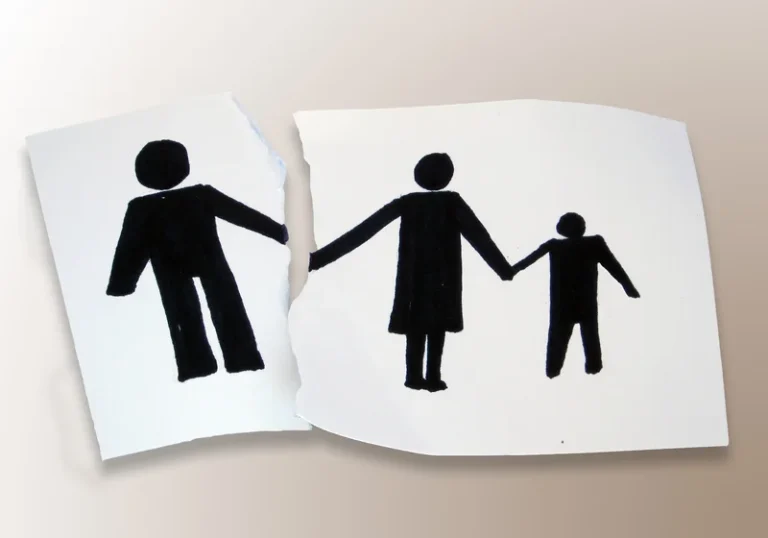Alcohol and Relationships: How It Affects Your Marriage Story

Alcoholism is a severe social, economic, and health issue. Alcoholism has a detrimental impact on a person’s drive, sense of purpose, moral principles, interpersonal interactions, and social standing. The pathogenetic effects of alcohol on the brain, neurological system, and other bodily components are the first cause of all the alterations. It has an impact on more than just human health. Alcohol and relationships are the subject of debate. It has the power to end a person’s interaction with friends, family, and with a spouse as well. Alcoholism is a prevalent condition that affects relations. But what kinds of interpersonal issues may drinking cause, and how alcohol affects relationships? How can a person resolve these problems, then?
How much alcohol is considered too much?
It takes months or years to develop the habit of drinking wine on weekends or special occasions. Then, some people regularly consume significant amounts of alcohol. Others only use alcohol on the weekends, but when they do, it’s so much that they cannot quit and lose their memory. When is it crucial to actively search and inquire? How can you possibly tell if your partner drinks too much?
One should exercise caution when making diagnoses involving alcohol. Therefore, the amount of alcohol that is excessive in a relationship relies significantly on the norms of the individuals involved. Even one shot after work is “too much” if you live an alcohol-free life out of conviction and expect the same from the person next to you. On the other hand, it’s obvious that your companion drinks more than is considered safe. According to the World Health Organization (WHO), the harmful dose of ethanol is 50 ml for women and 60 ml for males. It equates to 180 or 150 g of vodka, 1.5 liters of beer, or 0.5 liters of wine, respectively, in terms of alcoholic drinks. Exceptionally harmful consumption starts when these limits are crossed.

Take back control of your life and start on the road to recovery now.
How does alcohol damage relationships?
Numerous factors can cause relationships to fail. Trust in a spouse starts to break down. Additionally, the following aspects might be addressed:
- The person becomes neurotic. Alcohol has an impact on our thoughts and words. Fewer restrictions apply, and you are free to express your dislikes.
- Alcohol becomes a defense. The expression “I drank and blurted out too much” is common. However, it makes alcohol addiction and relationships worse and does not absolve anybody.
- Alcohol affects people’s behaviour. People are liberated by alcohol, and many become more aggressive or violent. These characteristics slowly show themselves through frequent alcohol consumption.
Alcohol and relationships are as different as night and day. Alcoholism might cause significant issues in relationships with partners and marriage. Recognizing any warning signs and taking immediate action to solve the problem is critical.
Common marriage problems caused by alcohol
When things don’t turn out the way at least one partner in a relationship believes they should, there is a problem. The following factors apply in the case of alcohol and relationships issues:
- Secrets. The spouse might try to “ignore” the loved one, hide their beverages, or even ban it out of guilt or to prevent alcohol and relationships difficulties. The individual who was tricked gets deceived if it is discovered. It breeds mistrust and sparks further disputes.
- Disappointment. People mistakenly believe relationships are less essential than drinking, which is another concern. Breaking pledges such as “I will not drink today” cause disappointment in a partner. Arguments and frustration are frequent results of it.
- Neglect. Refusing from social activities is another issue in alcohol and relationships, which leaves the other person feeling excluded. Ignoring someone can reveal itself, for instance, by displaying less interest in them, discontinuing to plan mutual activities, and negatively altering communication. A non-drinker needs to catch up on everyday interactions, activities, and conversations with others, whereas an alcohol addict won’t do it.
- Aggressiveness. Aggression may also be a substantial factor. Non-physical damage includes choleric conduct, insults, humiliation, and ignorance.
These are only a part of the numerous things that surface when a person struggles with alcohol and relationships problems. Many individuals ignore this, but it is essential to support a spouse who requires it and assist them in quitting alcohol.

What will a relationship with an alcoholic lead to?
The lives of many couples are ruined due to being in a relationship with an alcoholic. There are three primary possibilities:
- Alienation. The less one wants to have in common with such a spouse, the more disagreements, experienced binges, and insults are amassed. Alcohol abusers make empty pledges to sober up and change. Eventually, the relationship ends. An alcoholic will take this setback in their personal life as a justification to keep drinking. They don’t see drinking caused the separation since it made them careless, conflicted, and emotionally distant.
- Codependency. A healthy spouse may become so enmeshed in an alcoholic’s troubles they “lose themselves” in these interactions and start to suffer mental instability. Sometimes, the couple begins to drink together. Others want the drinker to be continuously “rescued” by covering their bills, providing for both, and resolving any possible issues.
- Getting over addiction. Only in this situation, and only if the person goes through the entire rehabilitation process, is it possible to have a good connection with a soulmate and save the marriage.
What if drinking has an impact on personal life? Addicts typically don’t worry about such implications and alcohol and relationships questions. Maintaining their usual way of life is essential, and a partner who insisted on sobriety seemed to be an aggravating obstacle. The partnership loses significance as the addiction progresses. In the early stages of the disease, an alcoholic can make changes on their own if they seek the assistance of professionals.
Can professionals help?
Both parties in a codependent relationship who consume alcohol require the assistance of an addictionist. Together, while receiving therapy, you may encourage and guide one another. It is preferable to see a therapist if just one member of a couple is an alcoholic, but the relationship deteriorates. Family counseling aids in redistributing responsibilities in a marriage, resolving arguments and grievances, and solving accumulated personal issues.
Most of the time, relationships with alcoholics are painful. Thus, a non-drinking partner should still see a psychologist. If one of the spouses is starting to develop an addiction, the other may make an appointment with an addictionist, get a consultation, and create a combined action plan with the doctor. If you do not begin alcoholism treatment, ignore the issue, attempt to fix it on your own, or give in to pressure, manipulation, or arguments, the relationship will eventually be destroyed by addiction.

This can be a difficult journey, but you don’t have to go it alone. Let us be your guide and provide you the environment needed to regain control of your life and begin the path to recovery.
Advice and support from a sober home
Eco Sober Houses, a sober home in Boston specifically for adult drug abusers, guarantees a comprehensive array of counseling and therapy while providing a valuable piece of alcohol and relationships advice. Alcohol addicts no longer have to endure the stresses which trigger relapse with the help of tight rules and a compassionate attitude. All Boston Eco Sober Houses have everything patients need to recover. Eco Sober Houses center its efforts on a blend of structured meetings, personalized counseling sessions, and various therapeutic activities.
Eco Sober Houses offers individuals the chance to investigate various approaches to recovery, with an emphasis on altering ingrained ideas and habits. Clients participate in recovery support through sober transportation to appointments, meetings, events, in-house groups, one-on-one assistance, and case management.
On the path to recovery, qualified professionals will assist patients in maintaining comfort and positivity. Call to Sober House hotline to get a confidential consultation if you’re ready to begin your road to recovery and salvage your problems with alcohol abuse and relationships or if you’re prepared to support a spouse struggling with alcoholism. It will be simpler to follow this road the sooner you resolve to alter your life.




